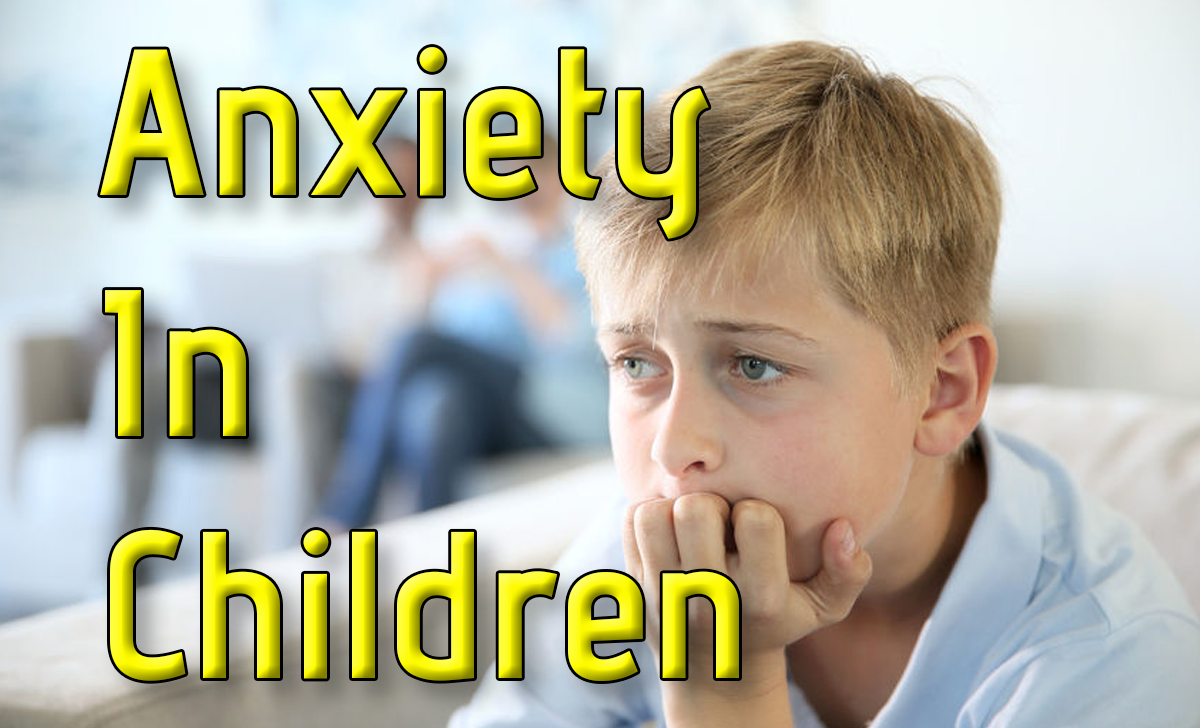
While Pastor Bennett was preparing last week’s sermon on our Lord’s words about anxiety (Matthew 6.25-34), I was preparing for an article to run the following week. This is how we want to begin using our website, to highlight applications related to themes from the previous Sunday’s sermon.
For more than a week now, I have been thinking about anxiety in a delightfully non-anxious way, particularly the way our Father cares for us during times of stress. This thought curiously transformed into the awkward and anxiety-producing thought of something unexpected: How have the Joneses children been cared for in their own anxieties by watching how mom and dad deal with stress? My, how silencing it is to consider my own parenting in light of the kind of parenting I have received from my heavenly Father.
Kate Julian considers a similar motif in her article, “Childhood in an Anxious Age and the Crisis of Modern Parenting,” in this month’s The Atlantic. Julian is convinced that our current approach to parenting doesn’t reduce the basic human vulnerabilities which can lead to anxiety, but exacerbates them. She says “some of the kids aren’t all right, and certain aspects of contemporary American life are making them less all right, at younger and younger ages.” She goes on to cite a study that finds anxiety disorders, by far the most common psychiatric condition in children, “affect nearly a third of adolescents aged 13 to 18”, and the median onset is age 11. In a 2018 study, she goes on to reveal that “in just five years, anxiety-disorder diagnoses among young people had increased 17 percent.”
Her driving question is, “How do you inoculate a child against future anguish?” While she, of course, is not writing to defend a Christian worldview, I think some of the things she notices actually serve to remind us of what a good God we have to care for us amidst anxiety-producing experiences of everyday life. Julian wants to encourage us to consider a new treatment from the Child Study Center of Yale University called SPACE (Supportive Parenting for Anxious Childhood Emotions). She believes so highly in this treatment that she calls it “an important keyhole to the broken way American adults now approach parenting.”
While I had not heard of this treatment until Julian’s article, some of the hallmarks of the SPACE method were interesting to me. They recommend “reducing parental accommodation”, reordering our lives to suit the anxieties of our children. Julian gives the example of “tying and retying a child’s shoe until they feel just right,” or “cutting a 13-year-old's food because she’s afraid of knives.” Another component of the SPACE treatment is “expressing empathy for their child’s suffering and confidence in her capabilities.” That is, to learn how to comfort them during their discomfort rather than “getting in the way of” the discomfort by simply making it go away.
Elsewhere in the article, Julian highlights the value of safe and healthy family structures, sharing meals together as a family, setting aside unstructured time to just be with your child, not being afraid to enter difficult discussion with your children, and altogether quelling the “permissive streak in American child-rearing that has simultaneously indulged children and encouraged their independence.”
All of this makes me think of the wonderful parenting book by Dan Allender, How Children Raise Parents, in which he posits that, from the womb, every child is asking two questions. The first is, “Am I loved?” The second is, “Can I get my own way?” Our heavenly Father assures us day by day, moment by moment, that we are loved. He did not resist even sending His own Son to not only sympathize with us (Hebrews 4.15), but to die for us; “by this we know love, that he laid down his life for us, and we ought to lay down our lives for the brothers (1 John 3.16).” Similarly, He makes sure we know that we cannot get our own way, by telling us about our own vain plots (Psalm 2.1) and lovingly exercising a better, “faithful and sure,” way (Isaiah 25.1). We know we are loved, and we know we are not the center of the universe. God refuses to capitulate to our whims, while He loves us for all eternity.
We parent well as we relay this grace of God to our children. We build a family household that worships and submits to the One True God and is connected to a larger household in the church body. We dine together as we have learned from Jesus, who came to dine with us (and will do so eternally). We relish in the happy presence of our children, as we relish the constant presence of our Father through the indwelling Holy Spirit. Finally, we dialogue with our children because we love dialogue with our Father through unceasing prayer.
This is a simplification, to be sure. This should, however, remind us of the vision God has for us in this present age, to care for us in such a way that anxiety is put into proper perspective, life stress that is circumscribed by a Father who knows how to love us. Our children, likewise, have access to this grace as they are cared for by God, their Perfect Parent, whose grace extends to very imperfect parents.







